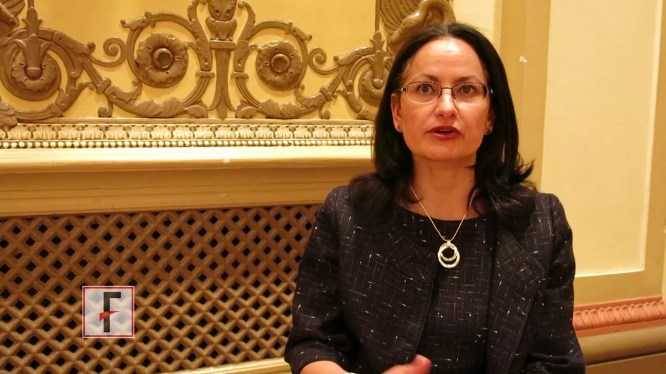User login
CHICAGO– Inappropriate treatment by physicians of women who have undergone female genital cutting (FGC) can block access to further care and harm patients psychologically, according to Dr. Nawal M. Nour, director of the ambulatory obstetrics practice at Brigham and Women’s Hospital and founder of the African Women’s Health Center in Boston.
Doctors who are unfamiliar with patients who have FGC can say or react to patients in ways that harms, rather than helps such women, Dr. Nour said at the annual meeting of the American Medical Women’s Association. Dr. Nour is the lead author of Female Genital Cutting: Clinical Management of Circumcised Women, published by the American Congress of Obstetricians and Gynecologists.
During her presentation, Dr. Nour shared cases in which doctors made teaching examples out of FGC patients, provided inaccurate information about vaginal deliveries, and focused on the FGC procedure, rather the woman’s reason for seeking medical attention.
In this video, Dr. Nour shares some common ways that physicians inappropriately respond to women who have undergone FGC, and how doctors can act more sensitively.
The video associated with this article is no longer available on this site. Please view all of our videos on the MDedge YouTube channel
On Twitter @legal_med
CHICAGO– Inappropriate treatment by physicians of women who have undergone female genital cutting (FGC) can block access to further care and harm patients psychologically, according to Dr. Nawal M. Nour, director of the ambulatory obstetrics practice at Brigham and Women’s Hospital and founder of the African Women’s Health Center in Boston.
Doctors who are unfamiliar with patients who have FGC can say or react to patients in ways that harms, rather than helps such women, Dr. Nour said at the annual meeting of the American Medical Women’s Association. Dr. Nour is the lead author of Female Genital Cutting: Clinical Management of Circumcised Women, published by the American Congress of Obstetricians and Gynecologists.
During her presentation, Dr. Nour shared cases in which doctors made teaching examples out of FGC patients, provided inaccurate information about vaginal deliveries, and focused on the FGC procedure, rather the woman’s reason for seeking medical attention.
In this video, Dr. Nour shares some common ways that physicians inappropriately respond to women who have undergone FGC, and how doctors can act more sensitively.
The video associated with this article is no longer available on this site. Please view all of our videos on the MDedge YouTube channel
On Twitter @legal_med
CHICAGO– Inappropriate treatment by physicians of women who have undergone female genital cutting (FGC) can block access to further care and harm patients psychologically, according to Dr. Nawal M. Nour, director of the ambulatory obstetrics practice at Brigham and Women’s Hospital and founder of the African Women’s Health Center in Boston.
Doctors who are unfamiliar with patients who have FGC can say or react to patients in ways that harms, rather than helps such women, Dr. Nour said at the annual meeting of the American Medical Women’s Association. Dr. Nour is the lead author of Female Genital Cutting: Clinical Management of Circumcised Women, published by the American Congress of Obstetricians and Gynecologists.
During her presentation, Dr. Nour shared cases in which doctors made teaching examples out of FGC patients, provided inaccurate information about vaginal deliveries, and focused on the FGC procedure, rather the woman’s reason for seeking medical attention.
In this video, Dr. Nour shares some common ways that physicians inappropriately respond to women who have undergone FGC, and how doctors can act more sensitively.
The video associated with this article is no longer available on this site. Please view all of our videos on the MDedge YouTube channel
On Twitter @legal_med
AT THE AMWA ANNUAL MEETING
